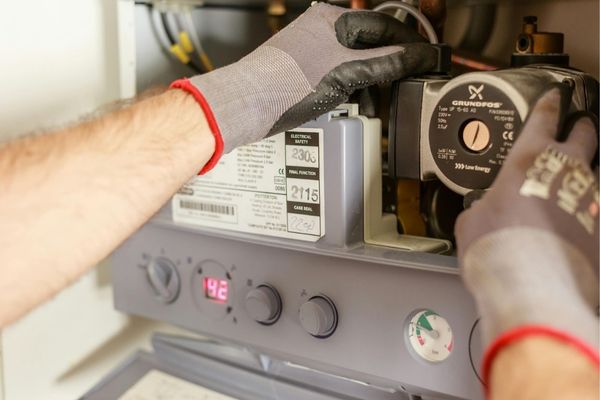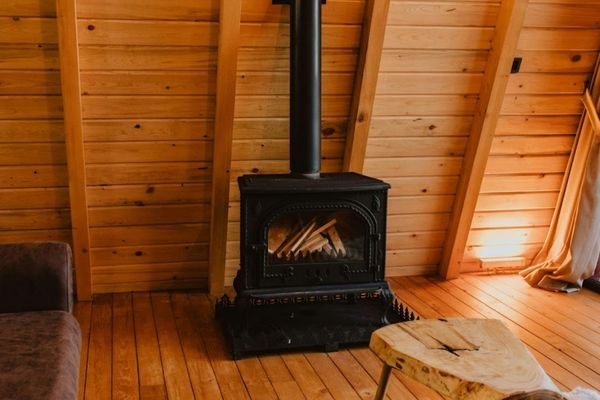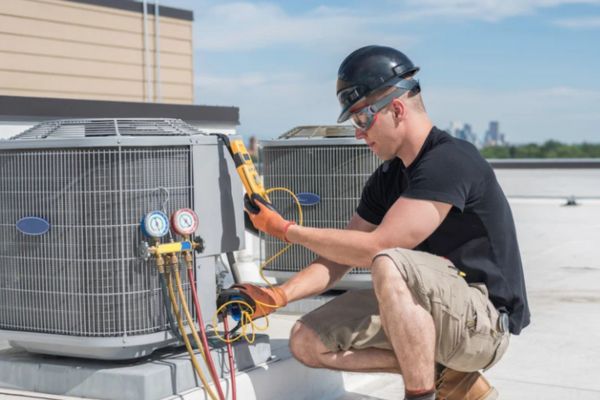Keeping your home cozy during the colder months is a top priority, and finding the right heating system can make all the difference. Furnaces and boilers are two of the most common ways to heat your home, and each has its own perks. Whether you’re after quick, toasty warmth or a steady, even heat, understanding how these systems work can help you decide what’s best for your space.
Let’s break down the basics of furnaces and boilers in a way that’s easy to follow. From how they work to what it takes to maintain them, we’ll walk you through the pros, cons, and key differences so you can confidently pick the option that fits your home and lifestyle. Let’s dive in!
How Furnaces Work
Furnaces work by heating air and circulating it throughout your home via ducts. This forced-air system is one of the most common in modern homes due to its quick ability to heat large spaces.
- Heating Process: Furnaces heat air using burners or electric heating elements, distributing it through ductwork to various rooms.
- Fuel Options: They can run on natural gas, propane, or electricity, offering versatility depending on fuel availability in your area.
- Maintenance: Regular filter replacements and duct cleaning are essential for maintaining efficiency and air quality.
Advantages and Disadvantages of Furnaces
Furnaces are a popular and efficient option for home heating, but like any system, they have advantages and disadvantages.
Pros
- Rapid Heating: Furnaces heat air quickly, making them ideal for swiftly warming your home when temperatures drop.
- Cost-Effective Installation: Furnaces typically cost less to install than boilers, particularly if your home already has existing ductwork in place.
- Readily Available Service: In many regions, especially the U.S., furnace parts and experienced technicians are easier to find, making repairs and maintenance more accessible.
Cons
- Lower Energy Efficiency: Furnaces are generally less efficient than boilers, losing more heat through air ducts during distribution.
- Impact on Air Quality: By circulating air, furnaces can distribute dust and allergens throughout the home, potentially leading to poorer indoor air quality.
- Noise Issues: Furnaces can be noisy, especially when the blower is running, and older models tend to be louder than newer ones.
How Boilers Operate
Boilers, on the other hand, use water to distribute heat, either through radiators or radiant floor systems. This method provides more consistent and even heating throughout your home.
- Higher Efficiency: Boilers often outperform furnaces regarding energy efficiency, especially when using modern, high-efficiency models.
- Consistent and Even Heating: Boilers offer a more steady and uniform heat, which can be particularly beneficial in colder climates.
- Improved Air Quality: Because boilers don’t circulate air, they don’t spread allergens, dust, or other airborne particles around the home.

Advantages and Disadvantages of Boilers
Boilers are a reliable heating solution for many homes, offering unique benefits and some drawbacks compared to other systems.
Pros
- Superior Energy Efficiency: Boilers tend to be more energy-efficient because water transfers heat more effectively than air, reducing energy consumption over time.
- Consistent, Even Heating: Boilers offer steady, even heat distribution, which is particularly beneficial in colder climates where maintaining warmth is vital.
- Better Air Quality: Unlike furnaces, boilers don’t circulate air, so they avoid spreading dust, allergens, and other airborne particles throughout your home, which can help improve indoor air quality.
Cons
- Higher Initial Investment: Boilers often come with a higher installation cost and may require more extensive plumbing, especially if your home still needs to be equipped with a boiler system.
- Slower Heating: Boilers generally take longer to heat your home than furnaces, which may be less ideal in regions with rapidly fluctuating temperatures.
- Risk of Water Damage: Boilers operate with water, meaning leaks or malfunctioning components could lead to water damage if not properly maintained.
Key Differences Between Furnaces and Boilers
Furnaces and boilers are two common heating systems with distinct differences in operating, efficiency, and suitability for various home types.
Heat Distribution
- Furnaces: Use forced air to distribute heat, heating rooms more quickly but sometimes unevenly.
- Boilers: Provide radiant heat using water or steam, delivering consistent warmth throughout the home.
Energy Efficiency
- Furnaces: Tend to be less efficient due to heat loss in the ductwork.
- Boilers: Are more energy-efficient, especially with modern condensing models that conserve more heat.
Installation and Maintenance Costs
- Furnaces: Usually have lower initial installation costs, but they may require more frequent filter changes and duct cleaning to maintain efficiency.
- Boilers: Have higher upfront installation costs but generally require less maintenance if they are installed and maintained correctly.
Impact on Air Quality
- Furnaces: Since they rely on forced air, they can distribute allergens and dust throughout your home.
- Boilers: Because they use water and don’t blow air, boilers are better for maintaining air quality, especially in homes with allergy sufferers.
Comfort and Heat Distribution
Comfort is another critical factor when choosing between a furnace and a boiler. How each system delivers heat impacts how your home feels during winter months.
- Furnaces: Furnaces heat air and blow it through ducts, which means rooms can heat up quickly but may feel drafty or uneven in terms of warmth. Forced air can also dry out the air.
- Boilers: Boilers provide radiant heat through floors or radiators, offering a more even and long-lasting warmth without the drafts or dry air that furnaces may produce.
- Air Quality Impact: Boilers typically maintain better air quality since they don’t rely on moving air, reducing dust and allergens in your home.
Installation and Cost Considerations
The upfront cost and installation complexity of heating systems can vary greatly, making it essential to factor in your budget and home design when deciding.
- Initial Costs: Furnaces tend to have lower initial costs but require ductwork installation if none exists. Boilers usually have a higher upfront price due to the need for pipes, radiators, or radiant floor systems.
- Installation Complexity: Installing a furnace is usually less complex if ductwork is already in place, while boilers require more labor-intensive piping, especially if retrofitting an existing home.
- Long-Term Costs: Boilers often prove more cost-effective over time due to their higher efficiency and longevity, though fuel costs (such as gas or oil) will also play a role.
Maintenance and Durability
Proper maintenance ensures your heating system runs smoothly and lasts as long as possible. Some systems require more frequent upkeep than others.
- Furnace Longevity: Furnaces typically last 15-20 years if well-maintained, with regular filter changes and duct cleaning essential to keep them running efficiently.
- Boiler Lifespan: Boilers tend to have a longer lifespan of 20-30 years as they have fewer moving parts. However, they require specialized valves, water levels, and pressure systems maintenance.
- Maintenance Frequency: Furnaces need regular maintenance, particularly for the filter and blower, while boilers generally need less frequent attention, focusing instead on water system components.

Choosing the Right System for Your Home
Several factors come into play when selecting the best heating system for your home. Home size, climate, and personal preferences all influence the decision.
- Home Size and Climate: A boiler might be the better option for consistent heat if you live in a larger home in a cold climate. A furnace can offer quick and efficient heating for smaller homes or milder climates.
- Heating Preferences: If you prefer a system that heats up quickly, a furnace may suit your needs. A boiler could be a better fit if comfort and consistent heat matter more.
- Fuel Availability and Costs: Fuel availability and price in your area should also be considered, as some regions have cheaper natural gas or propane access. In contrast, others rely on oil or electricity.
Making the Right Choice Makes The Difference
At the end of the day, the best heating system for your home depends on your needs, preferences, and budget. If you love the idea of fast, powerful heating, a furnace might be the way to go. If you’re all about consistent, even warmth and better air quality, a boiler could be your perfect match.
Whatever you choose, remember that regular maintenance is the key to keeping your system running smoothly and efficiently. And don’t stress—there’s no one-size-fits-all answer. Take your time, weigh your options, and choose the system that makes you (and your home) the most comfortable. Stay warm!


